Are you having problems with an itchy scalp while wearing extensions? Having extensions can be a great way to give your hair some extra volume or length, but it can also lead to scalp irritation and itching. If you’re experiencing this discomfort while wearing hair extensions, don’t panic; there are effective ways to treat the itch without having to remove your extensions.
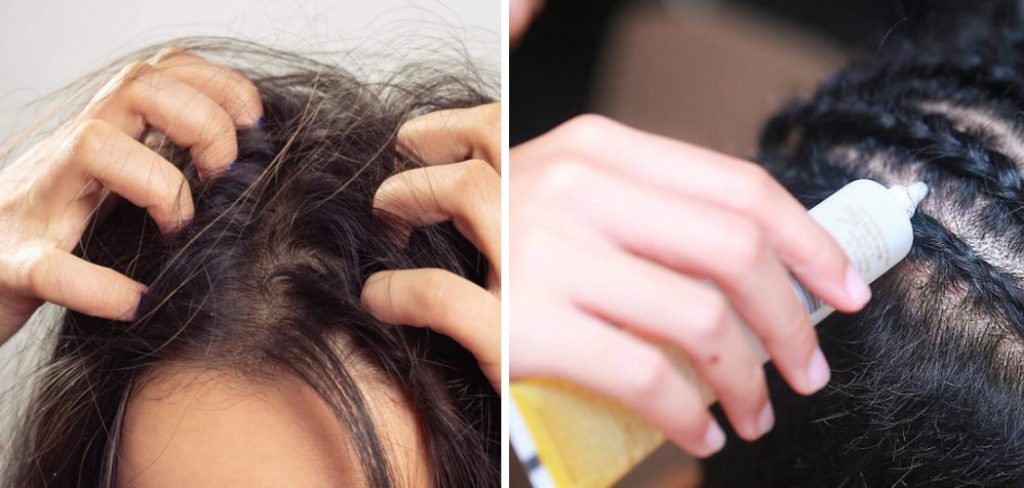
In this post, we’ll provide some tips and tricks on how to soothe an irritated scalp when attached with extension, where different at-home remedies as well as specialized products that may help reduce inflammation, will be discussed in detail. From using the right shampoo to regularly washing and deep conditioning the strands, read on for our tried-and-true tips for how to treat itchy scalp with extensions! Read on to learn more about treating itchy scalp associated with having hair extensions!
What Causes Itchy Scalp With Extensions?
1. Allergic Reaction
When having extensions, the main cause of itchy scalp is usually attributed to an allergic reaction from the adhesive used to attach them. The adhesive can often contain harsh chemicals that irritate sensitive scalps, resulting in itchiness and redness. Another issue may be the lack of proper care for the strands. Even though extensions are not your own hair, you still need to keep them clean and conditioned. If not, the hair can start to feel dry and brittle, leading to irritation.
2. Poor Sanitation
Another common cause is poor sanitation practices when installing or removing extensions. Many people don’t realize that it’s important to use a clean comb and brush when styling the strands in order to prevent bacteria build-up. Bacteria can accumulate on hair extensions and cause itching and irritation of the scalp.
3. Sweat & Dirt Buildup
In addition, build-up of sweat and dirt can occur when wearing hair extensions for too long without cleaning them properly or replacing them often enough. This will lead to an itchy scalp as well as a greasy feeling on the strands.
What to Consider While Choosing Hair Extension Shampoo
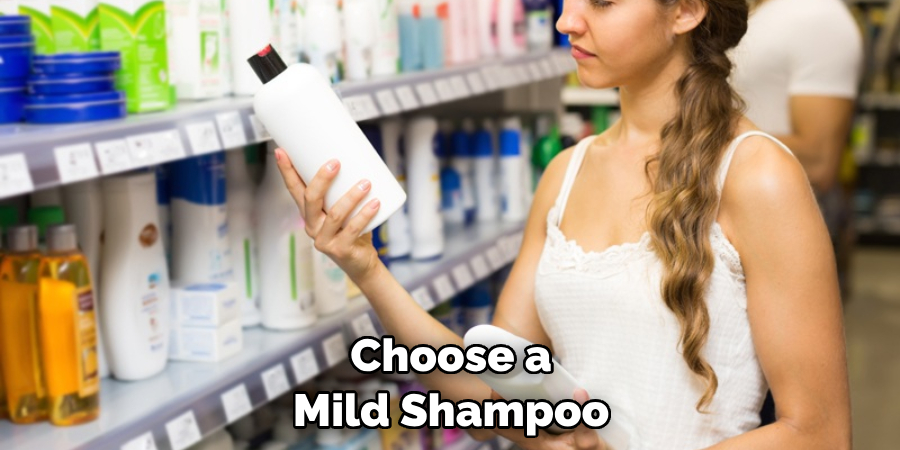
- Choose a mild shampoo that is specifically designed for extensions. It should contain natural ingredients such as aloe, coconut oil, argan oil, and other nourishing oils to keep the hair hydrated.
- Avoid shampoos that contain sulfates or parabens, which can irritate the scalp and dry out the hair extensions.
- Look for shampoos with a low pH level to help maintain the protective cuticle layer. This will also prevent too much moisture from entering the strands.
Required Items for Treating Itchy Scalp With Extensions
- Extension shampoo
- Mild conditioner or deep conditioner
- Wide tooth comb/detangling brush
- Soft towel
- Hair oils (such as argan, jojoba, and/or coconut oil)
How to Treat Itchy Scalp With Extensions in 10 Easy Steps
Step 1: Washing
Start by washing your hair extensions with a mild extension shampoo and gently combing them out with a wide-tooth comb or detangling brush. Make sure to pay extra attention to the scalp area to get rid of any dirt, oil, or product build-up. Keep in mind to be gentle and not to tug or pull on the extensions too much.
Step 2: Conditioning
Once you’re done washing, apply a mild conditioner or deep conditioner, depending on your hair type. Make sure to use a wide-tooth comb again while conditioning to ensure even distribution throughout the strands.
Step 3: Rinse
Rinse the conditioner out with lukewarm water and gently squeeze the strands to remove excess moisture. Avoid rubbing or harshly wringing out the extensions, as this can cause damage. Rinsing with cold water can also help close the cuticles, making them smoother and less prone to irritation.
Step 4: Towel Drying
Gently squeeze out excess moisture from the strands using a soft towel and allow them to air-dry. Do not use a blow dryer or any other heating tool, as this can damage the hair extensions. Towels should be soft and not overly abrasive in order to avoid further irritation.
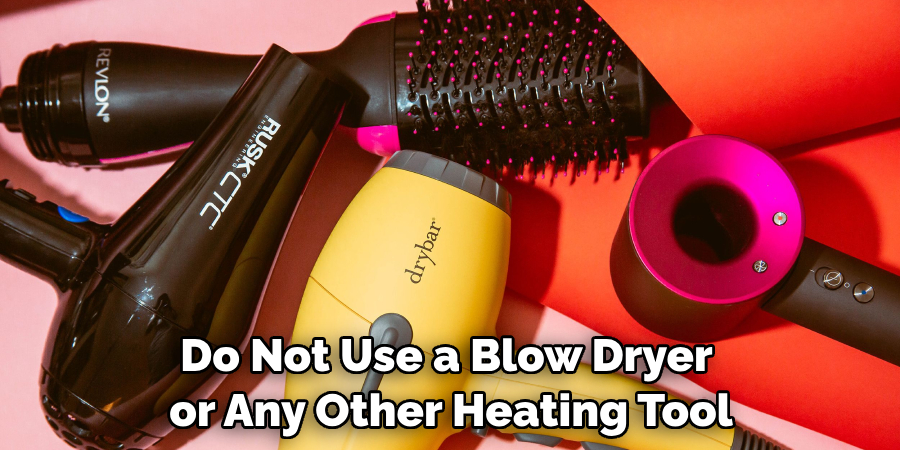
Step 5: Hair Oil Application
Once the extensions are mostly dry, apply a few drops of hair oil (such as argan, jojoba, or coconut oil) over the strands and massage them into the scalp. This will help keep the scalp hydrated and nourished while also reducing irritation.
Step 6: Overnight Treatments
For an overnight treatment, you can apply a few drops of oil to the scalp and leave in for 8-10 hours before washing out in the morning. This will help soothe and nourish the scalp while also providing some much-needed moisture to the strands.
Step 7: Avoid Heat
Be sure to avoid using any heat tools, such as curling irons or blow dryers, when styling your extensions. This will help keep your scalp from becoming irritated and itchy due to extreme temperatures.
Step 8: Loosen Tight Styles
If you have a tight style like braids or updos, make sure to periodically loosen them. This will help prevent scalp irritation and discomfort, as tight styles can cause friction on the scalp. Loosening the style can also help reduce the chances of bacteria build-up on the strands.
Step 9: Replace Extensions
It’s important to replace your extensions every few months or so in order to avoid bacteria build-up and scalp irritation. Make sure to use a mild extension shampoo and conditioner when washing them, as well as a wide-tooth comb to prevent tugging and pulling.
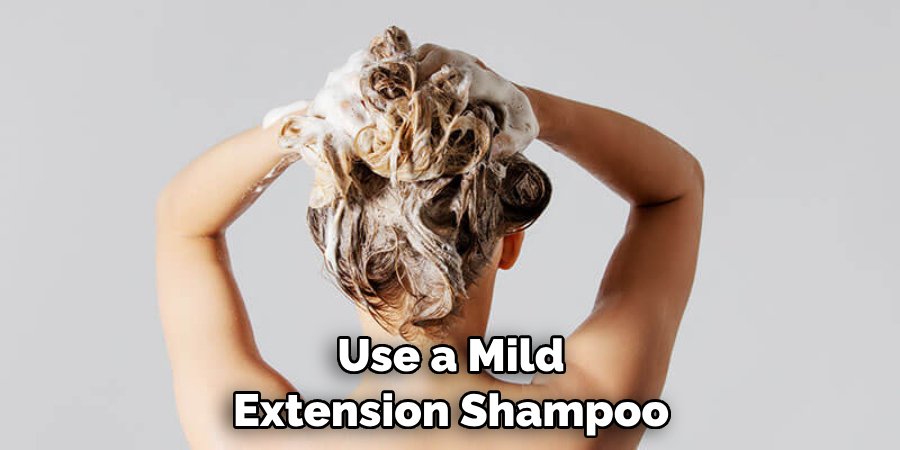
Step 10: See a Professional
If you still cannot get rid of the itchy scalp feeling after trying these remedies, then it’s best to see a professional. A stylist or trichologist can provide advice on how to properly care for your extensions as well as suggest products that may help reduce inflammation.
Treating itchy scalp with extensions doesn’t have to be a hassle. By following these tips above and deep conditioning the strands, you can keep your hair healthy and itch-free! If you’re still having problems, consult a professional for further advice. With proper care and maintenance, your extensions will look beautiful and last longer!
8 Tips to Prevent Itchy Scalp With Extensions
1. Avoid putting the extensions too close to your scalp. Make sure that your hair extensions are not pulled tightly against your scalp, as this can cause excessive itching and discomfort. Instead, take a few extra minutes to ensure that the extensions are properly secured away from the scalp.
2. Regularly cleansing your scalp with gentle products formulated for itchy scalps. It’s important to use a deep-cleansing shampoo that is designed to remove build-up from your extensions while also moisturizing and soothing the scalp.
3. Take regular breaks in between wearing hair extensions. Allowing your scalp some time away from the extensions will help keep it healthy and free of irritation.
4. Use a scalp brush to massage your scalp when you have extensions in. This will help encourage blood flow, which can provide relief for an itchy scalp.
5. Avoid using excessive styling products on your hair extensions, as this can clog the pores and create an environment for irritation and itching. Try to keep styling products to a minimum, or opt for natural alternatives like coconut oil or shea butter.
6. Avoid using harsh chemicals on your extensions, as this can cause further irritation and itching of the scalp. Stick to gentle shampoos and conditioners that are designed specifically for hair extensions.
7. Add a leave-in conditioner or natural oil to your scalp when wearing extensions in order to nourish and protect it. This will help keep the scalp moisturized and reduce itching.
8. When possible, avoid sleeping with your extensions in as this can increase friction against the scalp and cause further irritation. If you must sleep with your extensions in, make sure to wear a satin bonnet or scarf over them to protect your scalp from excessive rubbing.
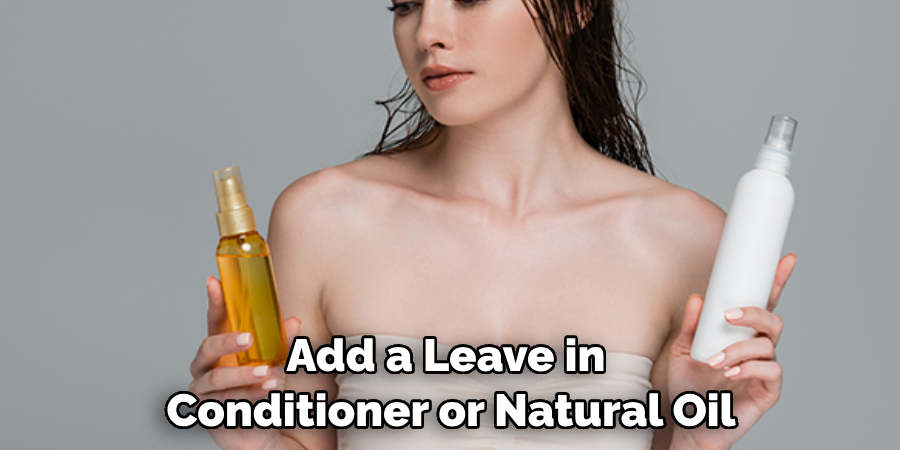
Following these tips should help you keep your scalp healthy and itch-free when wearing extensions. With a little extra care and attention, you can have beautiful hair without the discomfort of an itchy scalp.
Conclusion
Taking care of your scalp is essential when wearing extensions, so you need to make sure that you follow the maintenance steps on how to treat itchy scalp with extensions outlined above. When you have an itchy scalp from extensions, there are also natural remedies such as peppermint oil that can really help to soothe and calm irritation.
While it’s not a substitute for proper care and maintenance with extensions, peppermint oil can be just the added element to ensure relief and comfort. Additionally, everyone’s body responds differently to various treatments, so what may work for some may not necessarily work the same for others.
However, if itching persists or becomes very uncomfortable, it’s best to seek medical advice from your dermatologist or doctor sooner rather than later. Overall, having an itchy scalp with extensions should not be a reason to be afraid of wearing hair extensions. Certainly, do your due diligence in researching the brands that use quality products such as Remy human hair and also perform necessary maintenance regularly as instructed by professionals.
About the Author
Jane Hubbard is a passionate beauty expert with a wealth of experience in makeup, hair, and overall beauty techniques. After years of working as a hairdresser specialist, she followed her entrepreneurial spirit and started her own consultancy business.
Jane has always been driven by her desire to help others feel confident in their own skin, and she does this by sharing her knowledge, experiences, and practical beauty tips. Through her consultancy, she empowers individuals to embrace their unique beauty, offering tailored guidance that boosts both self-esteem and personal style.
Professional Focus
- Specializes in makeup, hairstyling, and beauty consulting.
- Provides personalized beauty advice, tips, and techniques to help individuals feel confident in their appearance.
- Dedicated to staying up-to-date with the latest industry trends and developments.
- Passionate about creating a comfortable and empowering experience for every client.
Education History
- University of Craft and Design – Bachelor of Fine Arts (BFA) in Woodworking and Furniture Design
- Woodworking Apprenticeships – Extensive hands-on training with skilled craftsmen to refine carpentry and furniture making techniques
- Online Courses & Masterclasses – Continued education in advanced woodworking techniques, design principles, and specialized tools
Expertise:
- Makeup artistry, hairstyling, and beauty consulting.
- Personalized beauty techniques to enhance confidence and self-expression.
- Educating clients on how to maintain their beauty routines at home.
